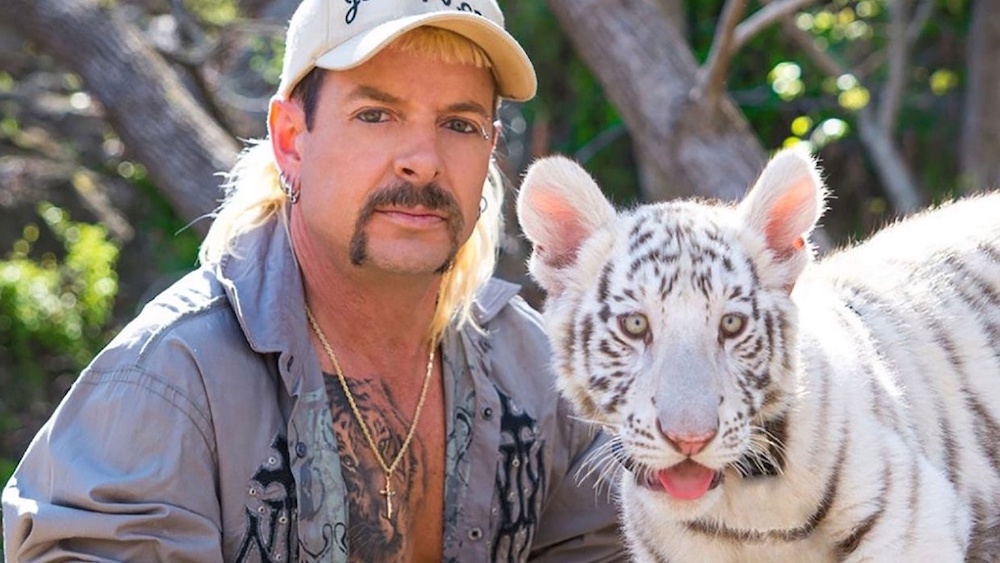Virginia just passed a law banning tiger cub petting encounters. Coverage from Netflix’s documentary series “Tiger King” may have played a part in the ban being signed into law.
On April 2, Governor Ralph Northam signed Senate Bill 1030—the Dangerous Captive Animal Exhibits Act—into law.
The legislation “prohibits a keeper of dangerous captive animals, defined in the bill, from providing or offering to provide to any member of the public, for free or for a cost, direct contact with such dangerous captive animal.”
The law prohibits the handling of dangerous captive animals, including big cats—such as lions and tigers—bears, and primates.
Violators will be charged with a Class 3 misdemeanor and will be issued a fine of up to $500. The law takes effect on July 1, 2021.
Twenty-one states currently prohibit exotic animal ownership. There is currently no U.S. federal law governing big cat ownership. However, last December, the House of Representatives garnered enough sponsors to move the Big Cat Public Safety Act forward.
If enacted into law, the bill would make direct contact, such as cub petting, between the public and big cats illegal.

‘Tiger King’ Exposes Truth About Captive Tigers
Netflix’s documentary series “Tiger King” exposed the truth about big cats in captivity.
There are a number of roadside zoos and other attractions that maintain non-profit status, masquerading as rescues and sanctuaries. However, the level of care given to animals in roadside zoos and sanctuaries greatly differs.
Sanctuaries put animal welfare first and do not typically buy, sell, trade, or breed animals in their care. They also try to keep the animals in an environment similar to what the animals would experience in the wild. Thus, they do not offer hands-on contact with the animals
Due to poor care, unnatural diets, and lack of physical activity, captive “wild” animals have incredibly high rates of cancer and other diseases like heart disease and obesity. They also run the risk of obtaining infectious diseases.
A tiger at the Bronx Zoo recently tested positive for the coronavirus after her keeper infected her. A wild tiger wouldn’t normally come into contact with a human and, thus, wouldn’t be exposed to the virus.
Captive tigers and other animals also suffer zoochosis—stereotypical behavioral changes common in captive animals. These include rocking, pacing, and other repetitive movements. Repetitive behaviors can lead to an increase in cortisol production—the stress hormone.


